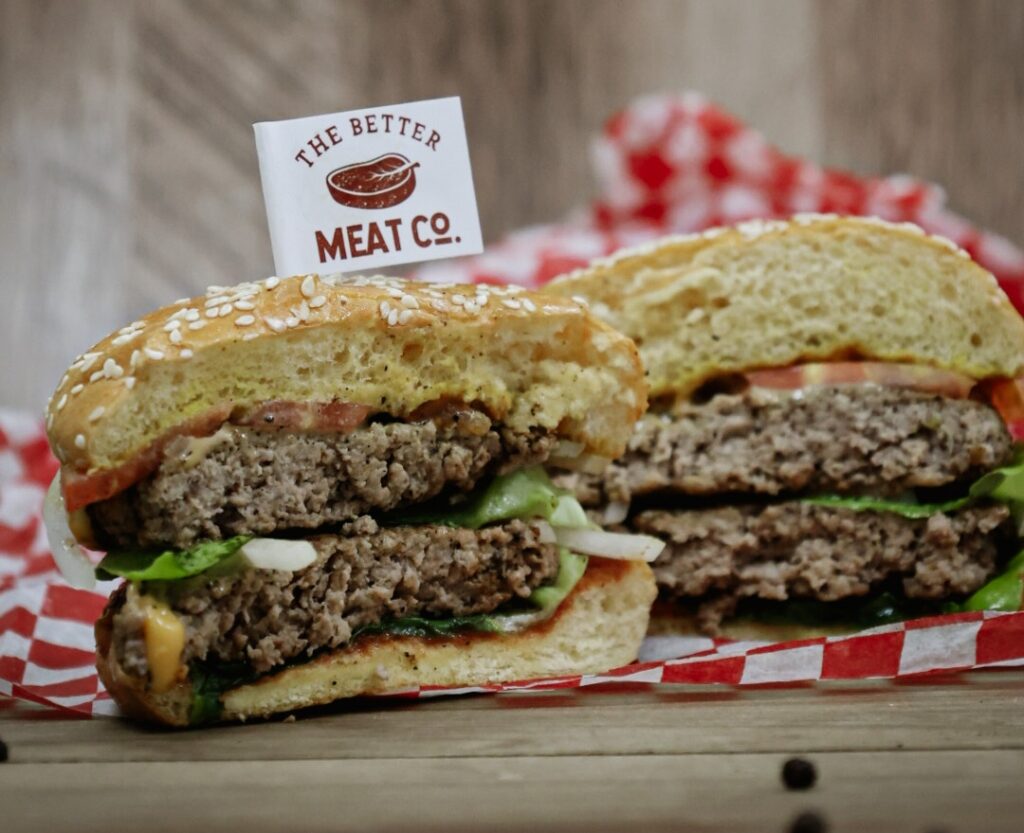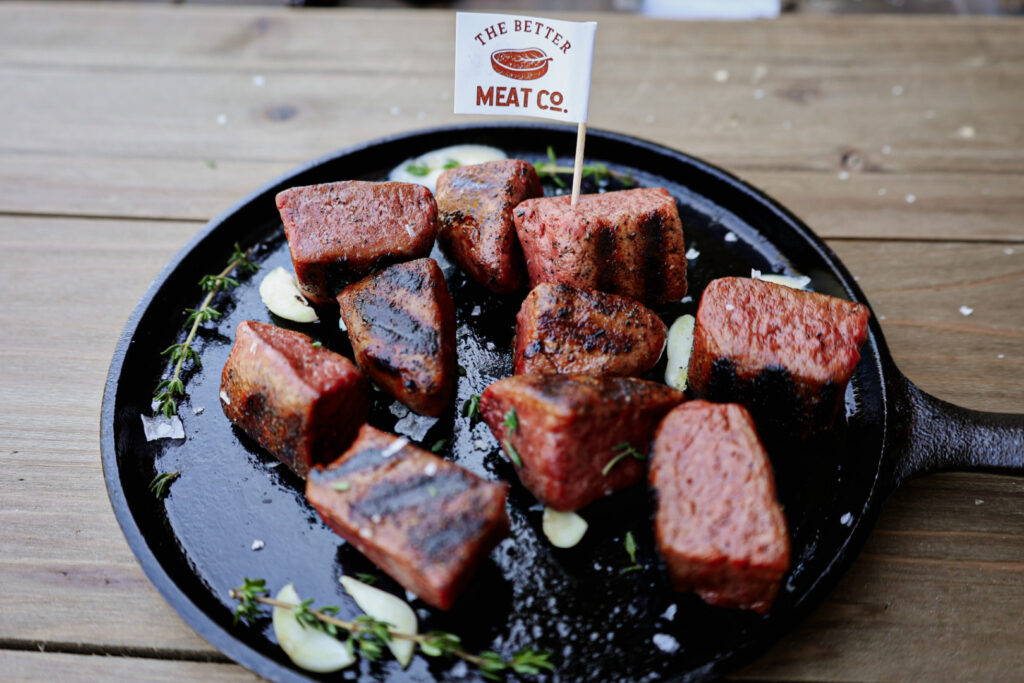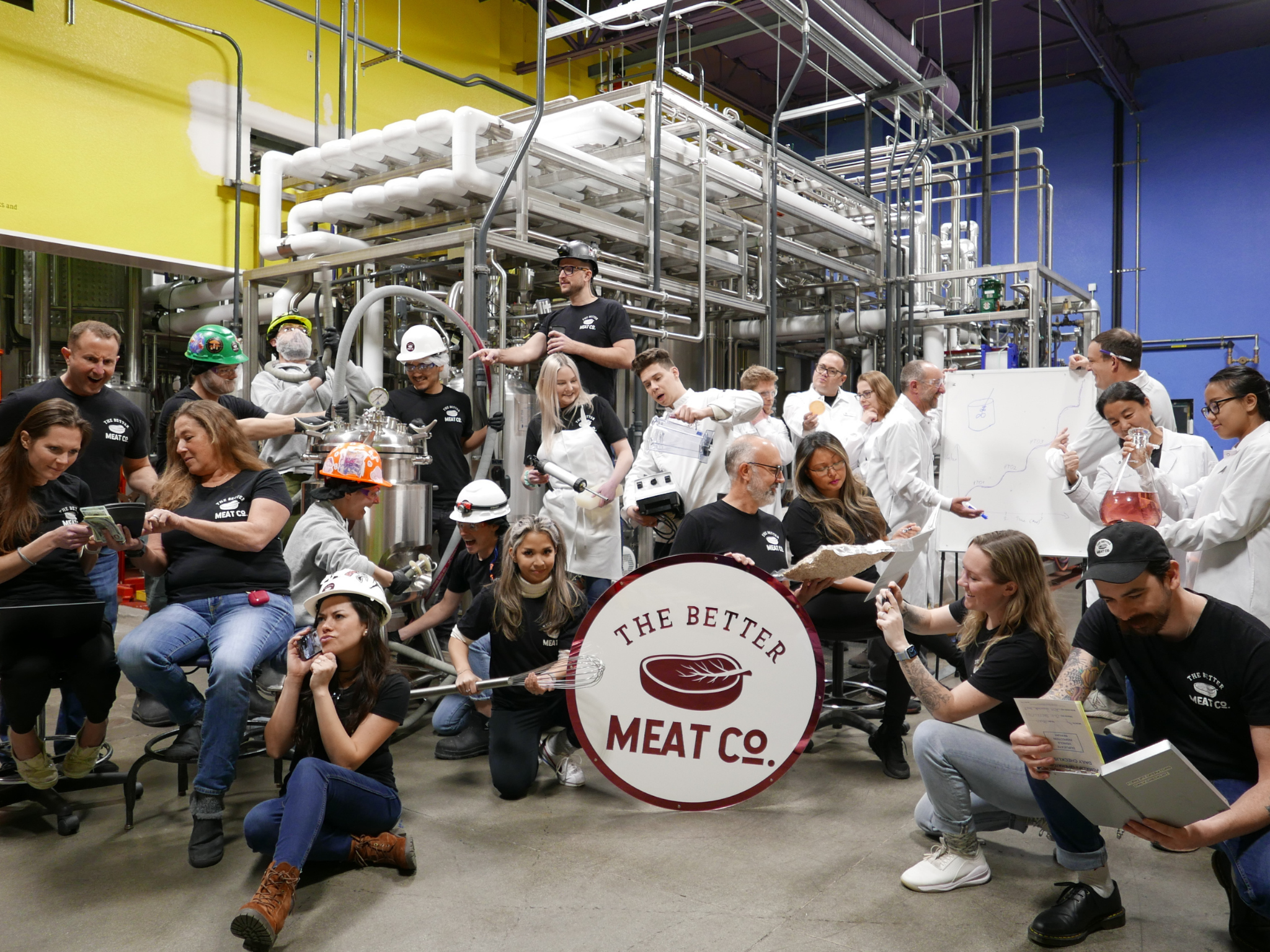Ahead of $15M Fundraise, The Better Meat Co Secures Mycoprotein Deal with South American Meat Giant
5 Mins Read
The Better Meat Co has signed a letter of intent with one of South America’s largest meat companies for the use of its mycoprotein in blended meat applications, just as it starts a new $15M fundraising round.
US food tech startup The Better Meat Co is eyeing new capital from investors as it charts its global expansion for its mycoprotein ingredient, Rhiza.
“We opened a fundraising round two weeks ago and intend to raise $15M toward our asset-light scale-up,” founder and CEO Paul Shapiro told Green Queen.
The Californian firm, which has secured $27M in funding to date, has also signed a letter of intent (LOI) with an undisclosed South American meat giant, which stated its interest in buying 30 tonnes of Rhiza mycoprotein (90 meat-equivalent tonnes in dry weight) per month.
This is The Better Meat Co’s largest LOI signed to date, adding to four other agreements from major meat producers in North America and Asia. Together, they’re projected to rake $13M in annual revenue for the company.
“Rhiza mycoprotein is a low-cost, highly versatile whole-food ingredient that enhances both animal meat and animal-free meat applications, which is why major food manufacturers love working with this ingredient so much,” said Shapiro.
He noted that while the company remains committed to plant-based partners like Oshi (which uses Rhiza in its vegan salmon), it has “always been most focused on working with meat companies to help them use fewer animals”.
While investment in alternative proteins has been hard to come by, fermentation-focused startups have piqued VC interest, raising 43% more capital in 2024 versus the year before.
The Better Meat Co projects eight-figure revenue with co-manufacturing deal

The Better Meat Co has partnered with major meat and food companies in joint development agreements (JDAs) to try Rhiza in their formulations. They pay the firm a monthly fee to gain access to the mycoprotein ingredient in its demo plant in Sacramento and create new products with it. Some of these partners include Hormel Foods, Maple Leaf Foods, and K12 caterer SFE.
Once the JDAs conclude, companies often sign LOIs to indicate the volume of mycoprotein they’d like to purchase once The Better Meat Co has commercial quantities available for them.
The aforementioned facility has a 9,000-litre fermentation capacity, but the demand for Rhiza mycoprotein “dramatically outstrips the available supply we can produce in our demonstration plant”, Shapiro said, outlining why “it’s imperative that we scale this system up with a contract manufacturer quickly”.
“Our expansion plans include scaling up at a co-manufacturer that will produce our mycoprotein in approximately 150,000 litres of fermentation capacity,” he said.
“We sell every kilo of mycoprotein we produce at our demonstration fermentation plant in Sacramento, and could quintuple our output there and still not scratch the surface of our demand,” he added. “We need to scale with the contract manufacturer, and at that point, we project a first-year revenue of eight figures.”
The startup has been working with Perdue Farms since 2019, supplying its legacy plant protein for the meat producer’s Chicken Plus blended meat range. It is now positioning Rhiza, derived from filamentous fungi, as a meat enhancer – participants in blind focus groups have preferred blended mycoprotein meatballs over those made from 100% beef.
It is among a number of players targeting the blended meat space, with meat-eaters finding these products more appealing in flavour and texture than fully plant-based or fermentation-derived products (and even some conventional ones).
Fable Foods, 50/50 Foods, Harvest B, Mush Foods, and Phil’s Finest are all innovating in this space, while industry giant Quorn is providing its mycoprotein for blended burgers and sausages in NHS hospitals in the UK.
A wallet- and health-friendly alternative

Rhiza is a whole-biomass ingredient, rather than a protein isolate, produced via the fermentation of fungi strain Neurospora crassa. The mycoprotein contains all essential amino acids and has a protein content of 50% by dry weight, which is higher than eggs. Further, it has a protein digestibility score of 0.87-0.96 (close to casein, beef and eggs).
Plus, it has more fibre than oats and more potassium than bananas, while containing no cholesterol and virtually no saturated fat.
After hydrating the protein, manufacturers can add functional ingredients like fats and flavours for meat-free applications, or grind it together with animal-derived meat for blended products. It offers producers a cheaper alternative to both plant-based and conventional products, a key differentiator amid global food price hikes.
The company also shifted to a continuous fermentation approach, which entails putting materials into bioreactors at the same time the finished product is being harvested. This has improved yields and reduced production costs by 30% – so even if no further R&D advancements are made, Rhiza will cost the same as commodity beef when produced at scale.
The Better Meat Co has received Generally Recognized as Safe (GRAS) certification from both the US Food and Drug Administration (FDA) and Department of Agriculture (USDA) to sell its mycoprotein stateside, as well as the Singapore Food Agency.
In August, the company received a $1.5M biomanufacturing grant as part of the US Department of Defense’s Distributed Bioindustrial Manufacturing Program (DBIMP), which it says it will use to open a new scale-up facility in the US.
US government support for biomanufacturing is shrinking, with President Donald Trump revoking a Biden-era executive order to boost the bioeconomy and foster innovation and new product development. How that impacts alternative proteins remains to be seen, but it is further fuel for the international expansion of companies like The Better Meat Co.



